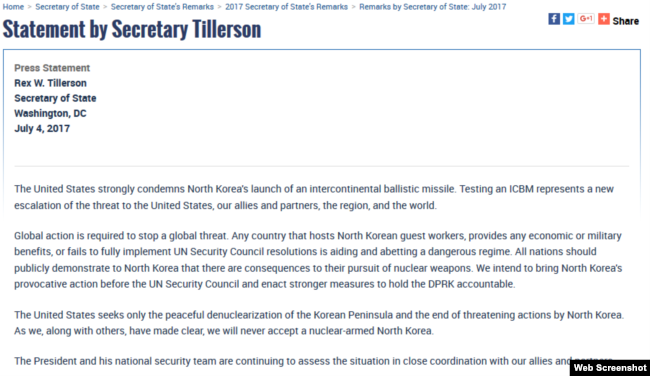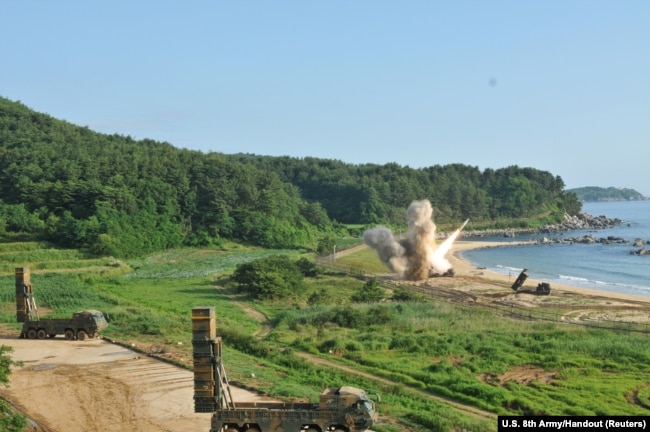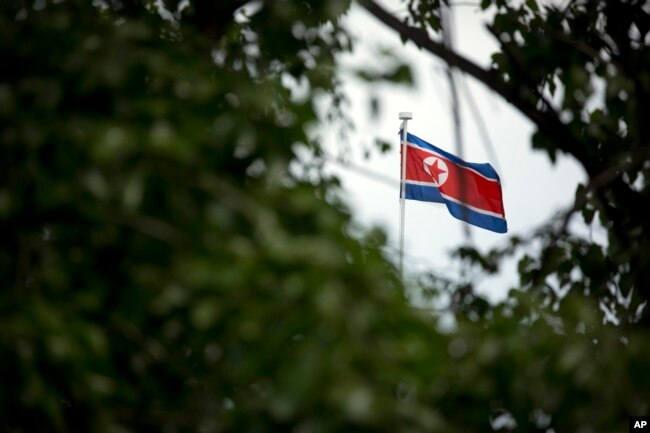
BEIJING / WASHINGTON — U.S. Secretary of State Rex Tillerson said Tuesday that global action was needed to stop the global threat posed by North Korea’s test launch of what appeared to be an intercontinental ballistic missile.
The latest North Korean action, Tillerson said, “represents a new escalation of the threat to the United States, our allies and partners, and the world.”
The top U.S. diplomat said any nation that hosts North Korean guest workers, provides the North with economic or military benefits, or fails to carry out U.N. resolutions against Pyongyang “is aiding and abetting a dangerous regime.”
North Korea said it had successfully test-launched an ICBM and claimed the rocket was capable of carrying a “large, heavy nuclear warhead.” Based on analysis of the steeply angled trajectory the rocket followed, U.S. experts said the missile appeared to have a range that would enable it to reach Alaska, even though Tuesday’s test splashed into the Sea of Japan.
Emergency session
The U.N. Security Council has set an emergency, closed-door meeting on the North Korean crisis for late Wednesday, and Tillerson said there would be stronger measures taken against the North.
In South Korea, U.S. and South Korean forces said they carried out an offensive missile exercise hours after the North Korean launch, intended to counter “North Korea’s destabilizing and unlawful actions,” in direct response to the North Korean test.
“The U.S. commitment to the defense of the ROK [Republic of Korea] in the face of threats is ironclad,” a joint statement said.
North Korea launched its new missile from an airport near its border with China. The spot where where it splashed into the Sea of Japan lay in Japan’s special economic zone, angering not only Tokyo but also Beijing, which appears to be failing to keep its ally in check.
China urges restraint
Chinese Foreign Ministry spokesman Geng Shuang said Beijing had made “relentless efforts” to resolve challenges on the Korean Peninsula. He said China’s role was “indispensable” and called on all parties to exercise restraint to quickly ease tensions.
“[China] urges North Korea to refrain from acts that violate U.N. Security Council resolutions and instead create necessary conditions for resuming dialogue and negotiations,” Geng said.
President Donald Trump will most likely pressure China even harder to harness the North’s nuclear ambitions. Trump has said while he “greatly appreciated” the efforts of China’s President Xi Jinping to help rein in North Korea, “it has not worked out. At least I know China tried!”
“Perhaps China will put a heavy move on North Korea and end this nonsense once and for all!” Trump tweeted Tuesday.
Commenting on North Korean leader Kim Jong Un, Trump wrote, “Does this guy have anything better to with his life? Hard to believe South Korea and Japan will put up with this much longer.”
Cheng Xiaohe, a political science professor at Beijing’s Renmin University, said it was still too early to tell what steps China might be willing to take or how the United Nations would respond — whether it would merely condemn the launch or enact new sanctions.
“If new sanctions are enacted, it should include new measures, such as a ban on North Korea-bound tourism and bans on North Korean petrochemical products,” Cheng said. “All of these are possible measures the Security Council could discuss.”
China has expressed a reluctance to cut off vital exports to the North, such as oil, since it is feared that such action could lead to the collapse of Kim’s regime, with untold consequences, or that Kim, believing he has nothing lose, could take direct military action against Seoul. | via voanews



